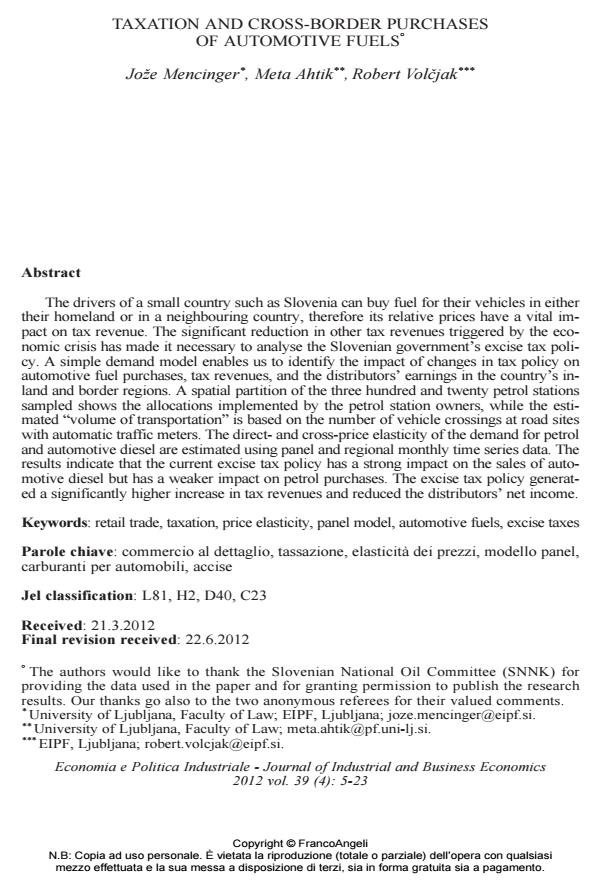Taxation and cross-border purchases of automotive fuels
Titolo Rivista ECONOMIA E POLITICA INDUSTRIALE
Autori/Curatori Joze Mencinger, Meta Ahtik, Robert Volcjak
Anno di pubblicazione 2012 Fascicolo 2012/4 Lingua Inglese
Numero pagine 19 P. 5-23 Dimensione file 245 KB
DOI 10.3280/POLI2012-004001
Il DOI è il codice a barre della proprietà intellettuale: per saperne di più
clicca qui
Qui sotto puoi vedere in anteprima la prima pagina di questo articolo.
Se questo articolo ti interessa, lo puoi acquistare (e scaricare in formato pdf) seguendo le facili indicazioni per acquistare il download credit. Acquista Download Credits per scaricare questo Articolo in formato PDF

FrancoAngeli è membro della Publishers International Linking Association, Inc (PILA)associazione indipendente e non profit per facilitare (attraverso i servizi tecnologici implementati da CrossRef.org) l’accesso degli studiosi ai contenuti digitali nelle pubblicazioni professionali e scientifiche
The drivers of a small country such as Slovenia can buy fuel for their vehicles in either their homeland or in a neighbouring country, therefore its relative prices have a vital impact on tax revenue. The significant reduction in other tax revenues triggered by the economic crisis has made it necessary to analyse the Slovenian government’s excise tax policy. A simple demand model enables us to identify the impact of changes in tax policy on automotive fuel purchases, tax revenues, and the distributors’ earnings in the country’s inland and border regions. A spatial partition of the three hundred and twenty petrol stations sampled shows the allocations implemented by the petrol station owners, while the estimated "volume of transportation" is based on the number of vehicle crossings at road sites with automatic traffic meters. The direct- and cross-price elasticity of the demand for petrol and automotive diesel are estimated using panel and regional monthly time series data. The results indicate that the current excise tax policy has a strong impact on the sales of automotive diesel but has a weaker impact on petrol purchases. The excise tax policy generated a significantly higher increase in tax revenues and reduced the distributors’ net income.
Keywords:Commercio al dettaglio, tassazione, elasticità dei prezzi, modello panel, carburanti per automobili, accise
Jel codes:L81, H2, D40, C23
Joze Mencinger, Meta Ahtik, Robert Volcjak, Taxation and cross-border purchases of automotive fuels in "ECONOMIA E POLITICA INDUSTRIALE " 4/2012, pp 5-23, DOI: 10.3280/POLI2012-004001